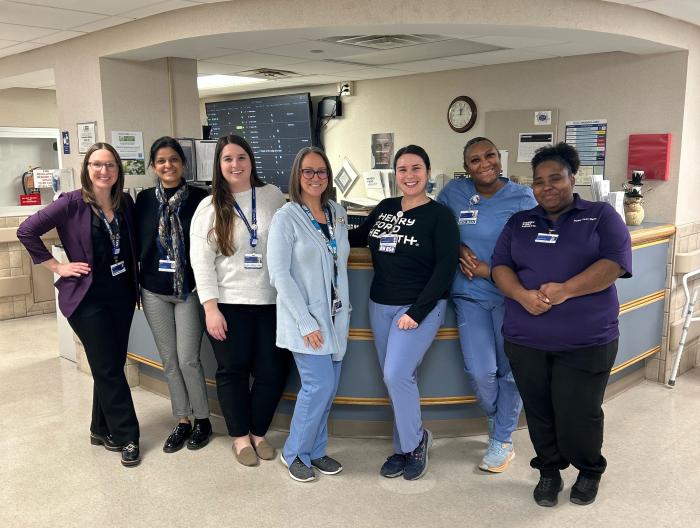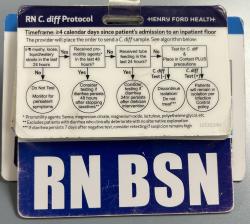Henry Ford Hospital Unit Lowers C. diff Infections by 90 Percent Using AHRQ Safety Program
Using AHRQ’s Comprehensive Unit-based Safety Program (CUSP), Henry Ford Hospital in Detroit reduced the incidence of Clostridioides difficile (C. diff) infections in its nephrology unit by 90 percent since January 2023. The hospital used the CUSP framework to engage frontline staff and significantly reduce hospital-acquired C. diff, a dangerous and highly contagious infection. Some of these interventions have now been adopted across the 800-bed hospital.
CUSP is a method that can help clinical teams make care safer by combining improved teamwork, clinical best practices, and the science of patient safety. The Core CUSP toolkit gives clinical teams the training resources and tools to apply the CUSP method and build their capacity to address patient safety issues.

Henry Ford Hospital has a long history of using CUSP to improve patient safety. “We really believe in CUSP,” said Swati Verma, M.S., Henry Ford’s principal management engineer for performance excellence and quality. “Our hospital’s chief nursing officer and quality leaders promote CUSP with a passion.”
What’s more, added Rachel Ciroski, M.S.N., R.N., inpatient nephrology unit manager, “We get more traction with staff when we tell them we’re using CUSP to make changes.”
Patients in the 34-bed nephrology unit are vulnerable and at high risk of infection; many need dialysis multiple times each week. Those with end-stage renal disease are twice as likely to develop C. diff than other patients. According to Ciroski, preventing C. diff is literally lifesaving for these patients.
One of the early problems identified was that patients were being admitted to the hospital with an existing C. diff infection. Rachel Smith, B.S.N., R.N., nephrology unit educator, explained, “The nurses had not all been following best practices to test patients within the first 3 days of admission and document the presence of infection.”
Upon further investigation, identifying the hospital’s total C. diff infections revealed that a third of them were diagnosed in patients staying on the nephrology unit.
Using a nurse-driven protocol to verify C. diff in patients with symptoms, the nephrology unit launched a number of interventions in early 2023 to bring down the number of C. diff infections, including:
- Education from hospital leader on infection prevention, such as:
- Explaining the nurse-driven testing protocol.
- Demonstrating proper isolation techniques.
- Sharing case studies showing missed opportunities with bedside staff.
- A new multidisciplinary cleaning initiative called “Scrub-down Sundays.” In addition to the regular work done by the environmental services staff, every Sunday the unit’s nurses, nursing assistants, and secretaries do thorough bleach-based cleaning on shared items (e.g., vital signs machines, glucometers).
- Reinforcement of staff education.
- “Badge buddies” with C. diff control protocols attached to all staff badges to empower the use of the nurse-driven protocol and serve as a constant reminder. These badges are now distributed system-wide at hospital orientations.
- Building accountability by auditing and coaching.
- Continuing and frequent real-time staff education.

Using the nurse-driven protocol and implementing infection prevention interventions have protected and treated many of the nephrology unit’s high-risk patients. Early isolation protects staff and other patients from the spread of infection, and early testing allows for faster treatment and symptom control.
Within the first year, the hospital-onset C. diff rate dropped by about 70 percent; by the end of 2024, it was down 90 percent. “CUSP resources were really essential in accomplishing our goals,” Smith noted.



